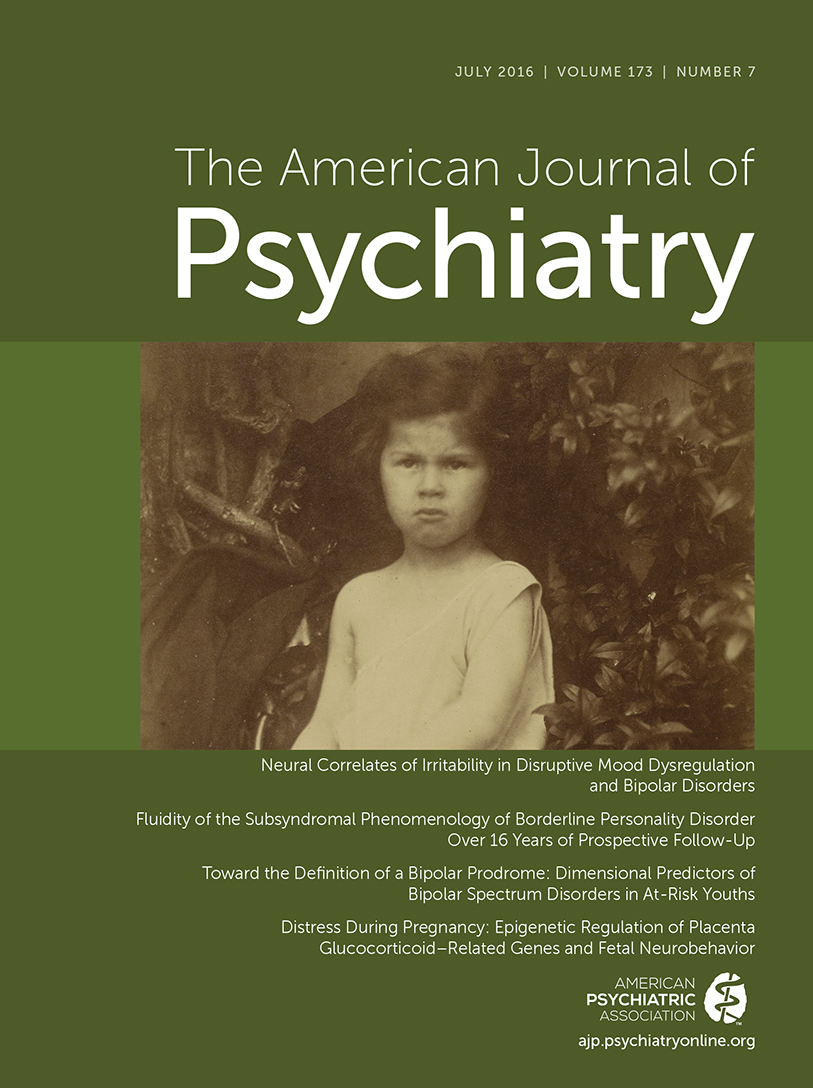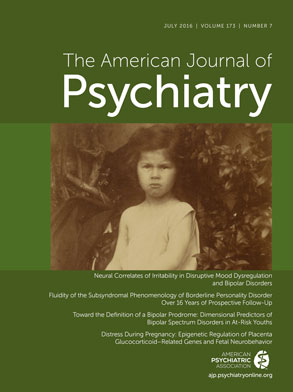I want to thank Dr. Paul Summergrad for the lovely introduction. It is an honor to be introduced by someone that I so highly respect.
I am privileged to have served as the 142nd President of the American Psychiatric Association, the oldest medical specialty society in the United States and the world’s largest psychiatric organization. I feel fortunate to have had the support of our accomplished Board of Trustees and the outstanding APA administration, especially our CEO and Medical Director, Dr. Saul Levin, and to have worked with the Assembly, especially Dr. Glenn Martin, the Speaker of the Assembly. I would also like to thank my incredibly supportive family who are here today: my wonderful husband, Mardi, my two children, David and Michelle, and their spouses, Cristy and Neal. Without their love and encouragement, I would not be standing here today.
The theme of my presidency during this past year has been “Claiming Our Future.” In this talk, I will discuss what we have done and what still needs to be done to claim our future.
We are members of a great profession: psychiatry. Winston Churchill said, “The price of greatness is responsibility.”
Let us talk about our responsibility and what needs to be done. I will focus on five areas of responsibility.
1) Caring for our neediest citizens. Frederick Douglass, the African American social reformer and statesman said, “Man’s greatness consists in his ability to do and the proper application of his powers to things needed to be done.” As psychiatrists, we need to apply our knowledge and political clout to help people who suffer from serious mental illness. This includes individuals who are incarcerated and who need mental health care rather than imprisonment. I am proud of our accomplishments this year in highlighting the issue of criminalization of persons with mental illness. We had press conferences, a Congressional briefing, bipartisan legislation that passed the Senate, news articles, an event with Chief Justice John Roberts featuring passionate remarks by Judge Steve Leifman, a 250-person-strong national training conference with county, state and judicial officials, and our inaugural APEX [American Psychiatric Excellence] awards, attended by over 450 people. During the APEX awards just last month, our emcee, Cokie Roberts, presented awards to legislators, from both sides of the aisle, who are working hard on decriminalization, including the Democratic U.S. Senator Al Franken and the Republican Florida Senator Miguel Diaz de la Portilla. We also gave an award to the stars of a popular TV show, Orange is the New Black, for helping to bring this problem into national consciousness. All of these events focused attention on the fact that 2 million people who suffer from mental illness are admitted each year to our jails. Although our nation’s jails are ill-suited to treat people with mental illness, in many locales they have become the de facto mental health facilities. There are solutions!! We need to advocate for better training of police officers, for better community treatment, for diversion programs including mental health courts, drug courts, and veterans’ courts, and for better treatment and follow-up for people with mental illness who do wind up in jails and prisons. The Senate acted on the APA-supported Comprehensive Justice and Mental Health Act, and we now must see it through the House and into law. We have done a lot this year, but these initiatives need to continue. It is our responsibility! As Frederick Douglass said, we need to apply our powers to bringing about the solutions.
2) Decreasing stigma. We must continue to decrease stigma. We have made headway in this area, but much more needs to be done. It is stigmatizing to have a mental illness and/or a substance use disorder. At last year’s APA convocation, Dr. Nora Volkow, Director of the National Institute of Drug Abuse, revealed that she did not know that her grandfather was addicted to alcohol and had killed himself until her mother told her just before her mother’s death. Growing up, I had a similar experience, where I was not told for many years that one of my relatives had committed suicide. People who live with mental illness and substance use disorders still experience discrimination in housing, employment, and relationships. As psychiatrists, we must lead the fight to decrease stigma. Mental illness is ubiquitous. One out of five adults (approximately 40 million people) experiences a mental illness each year. Most families are affected. We need to talk about it and normalize it so that people feel freer to seek treatment. As we know, untreated mental illness can lead to suicide, deterioration of psychiatric conditions, increased medical complications, disability, decreased productivity in the work place, and tremendous angst and suffering for patients and their families.
Earlier this year, the fashion icon Kenneth Cole put up a billboard over the Westside Highway in New York. It said, “Over 40 million Americans suffer from mental illness. Some can access care … All can access guns.” The implication of the billboard was that people with mental illness are violent and should not possess guns. Of course, most people with most types of psychiatric diagnoses are not violent, and the billboard contributed greatly to the fear of anyone with a mental illness, including anxiety, depression, adjustment disorders, obsessive-compulsive disorders, or neurocognitive disorders. The APA brought together two dozen other professional and advocacy groups to demand that Kenneth Cole remove the billboard. He did! This is an example of what APA has done and must continue to do to fight stigma.
3) Increasing funding for research and delineating diagnoses and treatment. We must continue to advocate for more research funding for NIMH and other NIH institutes so that we can explore the underlying causes of mental illness and develop better strategies for prevention, early intervention, and treatment. We also need to continue to advocate for the ongoing improvement of current treatments, including psychotherapies.
The DSM is a remarkable document. Its purpose is to be able to reliably and consistently diagnose different psychiatric conditions. However, by design, the DSM does not address etiology. As new scientific discoveries are made, we need to continue to update the DSM.
We also need to play our part in evaluating our current treatments, and we have made some headway in this direction. In March 2016, the Board of Trustees voted to develop an APA registry so that de-identified information about our patients, in the real world, can be collected to better determine what treatments work and for which patients.
4) Advocating for our leadership role in new models of care and increasing access to mental health care. In 1960, John F. Kennedy said, “The new frontier is here whether we seek it or not.” This is definitely true for health care delivery. As psychiatrists, we are aware that many patients cannot access mental health care. In addition to an overall workforce shortage of psychiatrists, and especially child psychiatrists, we have problems with reimbursement from insurance companies, difficulties in ensuring that the parity law is enforced, and inadequate provider networks. We must advocate for seeing that mental health services are available to everyone. There is no health care without mental health care. Mental health care is a right and not a privilege. Providing access to mental health care is also fiscally wise. There is solid evidence that mental health care brings down the costs of general health care.
During this year, I spoke at several Congressional briefings relative to the issue of access to care. In one briefing, my co-panelists and I educated Congressional staff about the problem of not having adequate psychiatric beds and how that leads to psychiatric patients being “boarded” in emergency departments for long periods of time. This is harmful to the psychiatric patients and also to the medical and surgical patients in the emergency departments. Another Congressional briefing served to educate members of Congress about the utility of integrated care and especially the collaborative care model. As we know, most of our psychiatric patients get their care from primary care physicians, and we showed data to Congressional staff about the decrease in morbidity and mortality by having behavioral health services available in those settings.
In addition, during this year, we have promoted the use of telepsychiatry as a means of increasing access to care. More than half of the counties in the United States do not have even a single practicing psychiatrist or psychologist. Telepsychiatry can help bring psychiatric care to those counties, as well as to patients who have difficulty coming into a psychiatrist’s office. Under the leadership of Dr. Jay Shore, a workgroup gave presentations at all of the APA meetings and developed a tool kit as part of the APA website that will help our members utilize this technology.
Later this year, we will vote for the next President of the United States. We must ensure that providing access to mental health care is part of every candidate’s platform. This is a bipartisan issue!!
5) Assuming responsibility for measures of quality, competence, and advocacy. We are being constantly regulated by various outside groups. For example, third-party payers, including Medicare, are telling us that payment for services will be linked to value and quality. State medical boards and the American Board of Medical Specialties are telling us that there needs to be evidence that we are continuing to practice competently after we are no longer residents and are many years into our practice and that this will need to be demonstrated as a condition of licensure and certification. I don’t think that anyone disputes that physicians need to keep up with new treatments and with advances in our fields of practice. Many of the facts that we learned in medical school and residency training are no longer thought to be true. The issue is that we must regulate ourselves and not have others do it for us. This is not a new concept, and I am not the first APA President to have stated this in their Presidential address. In 1928, Adolf Meyer, in his Presidential address, called for the APA to set educational standards for psychiatry. In 1933, James May, in his Presidential address, said, “Either we must act or we will yield the control of this field to others.” It is now 2016, and I am repeating their messages in my Presidential address: we must set standards for ourselves or others will set them for us.
During this last year, we have taken steps in this direction. We have developed educational products for our members that will meet the maintenance of certification requirements and demonstrate that we are practicing at a high quality. We also have successfully advocated for changes in maintenance of certification requirements.
I am pleased by the resource documents and practice guidelines that we have developed during this past year. For example, we published an “APA Commentary on Ethics in Practice” that gives updated guidance to our members about ethical practice. We also have developed resource statements guided by research data about outpatient commitment, about gun policy, about the use of ketamine, and about how to use medications in patients with dementia.
In summary, we must claim our future. We must assume our responsibility to help our neediest patients, decrease stigma, improve diagnoses, advocate for research funding, continue to strengthen parity enforcement, work to improve access to care, continue to educate our members, and be responsible for the quality of care provided by our profession.
Let’s never forget why we became psychiatrists. This is a noble profession where we can truly make a difference in people’s lives. We have a special relationship with our patients where they trust us enough to share their thoughts, aspirations, dilemmas, and struggles, and by using our education, experience, and training, we are given the opportunity to help them live their lives more fully and to relieve their suffering.
Last year when I addressed this audience as incoming President, I referred to three rhetorical questions posed 2000 years ago by the scholar Hillel. These questions were relevant 2000 years ago, relevant one year ago, and are still relevant! The questions are: 1) “If I am not for me, who will be for me?” (That is, we must advocate for the future of our profession and also to see that our patients have access to the best possible care); 2) “If I am only for me and not for others, what am I?” (That is, we must never forget our role in serving the needs of our patients and our society. We are members of a principled and great profession, psychiatry, and we have ethical and moral obligations to see that our neediest patients get the care that they need and deserve. As Winston Churchill said, this is our responsibility); and 3) “If not now, when?” (We must look forward and claim our future for ourselves and our patients!).
Thank you for the honor of serving as your President this past year!


